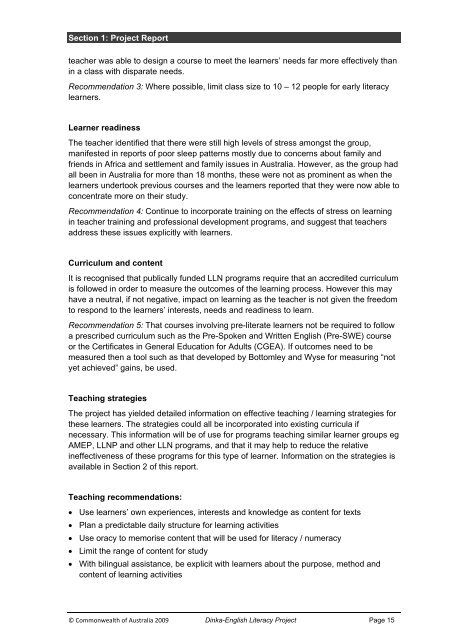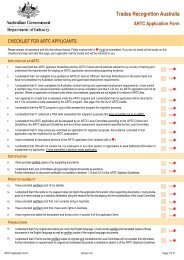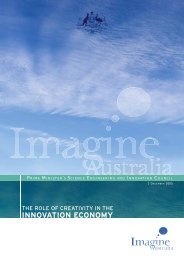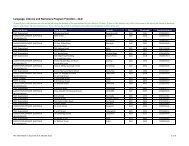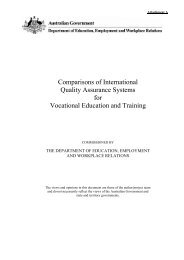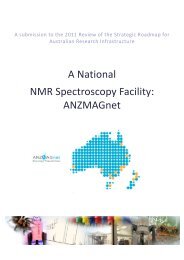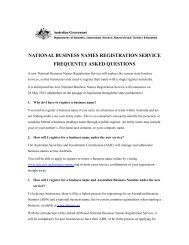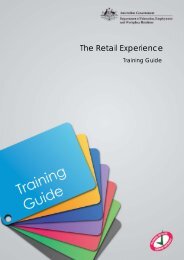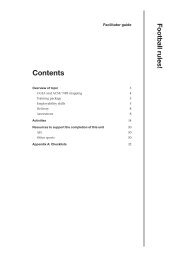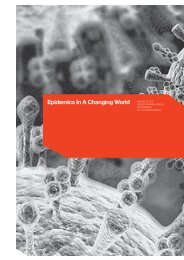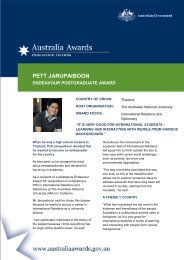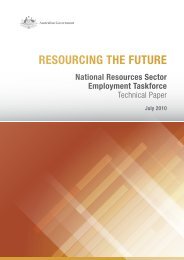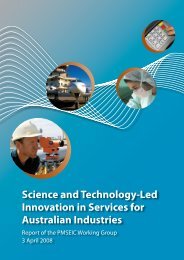First Language (Dinka) Literacy as a Foundation for English ...
First Language (Dinka) Literacy as a Foundation for English ...
First Language (Dinka) Literacy as a Foundation for English ...
Create successful ePaper yourself
Turn your PDF publications into a flip-book with our unique Google optimized e-Paper software.
Section 1: Project Report<br />
teacher w<strong>as</strong> able to design a course to meet the learners’ needs far more effectively than<br />
in a cl<strong>as</strong>s with disparate needs.<br />
Recommendation 3: Where possible, limit cl<strong>as</strong>s size to 10 – 12 people <strong>for</strong> early literacy<br />
learners.<br />
Learner readiness<br />
The teacher identified that there were still high levels of stress amongst the group,<br />
manifested in reports of poor sleep patterns mostly due to concerns about family and<br />
friends in Africa and settlement and family issues in Australia. However, <strong>as</strong> the group had<br />
all been in Australia <strong>for</strong> more than 18 months, these were not <strong>as</strong> prominent <strong>as</strong> when the<br />
learners undertook previous courses and the learners reported that they were now able to<br />
concentrate more on their study.<br />
Recommendation 4: Continue to incorporate training on the effects of stress on learning<br />
in teacher training and professional development programs, and suggest that teachers<br />
address these issues explicitly with learners.<br />
Curriculum and content<br />
It is recognised that publically funded LLN programs require that an accredited curriculum<br />
is followed in order to me<strong>as</strong>ure the outcomes of the learning process. However this may<br />
have a neutral, if not negative, impact on learning <strong>as</strong> the teacher is not given the freedom<br />
to respond to the learners’ interests, needs and readiness to learn.<br />
Recommendation 5: That courses involving pre-literate learners not be required to follow<br />
a prescribed curriculum such <strong>as</strong> the Pre-Spoken and Written <strong>English</strong> (Pre-SWE) course<br />
or the Certificates in General Education <strong>for</strong> Adults (CGEA). If outcomes need to be<br />
me<strong>as</strong>ured then a tool such <strong>as</strong> that developed by Bottomley and Wyse <strong>for</strong> me<strong>as</strong>uring “not<br />
yet achieved” gains, be used.<br />
Teaching strategies<br />
The project h<strong>as</strong> yielded detailed in<strong>for</strong>mation on effective teaching / learning strategies <strong>for</strong><br />
these learners. The strategies could all be incorporated into existing curricula if<br />
necessary. This in<strong>for</strong>mation will be of use <strong>for</strong> programs teaching similar learner groups eg<br />
AMEP, LLNP and other LLN programs, and that it may help to reduce the relative<br />
ineffectiveness of these programs <strong>for</strong> this type of learner. In<strong>for</strong>mation on the strategies is<br />
available in Section 2 of this report.<br />
Teaching recommendations:<br />
• Use learners’ own experiences, interests and knowledge <strong>as</strong> content <strong>for</strong> texts<br />
• Plan a predictable daily structure <strong>for</strong> learning activities<br />
• Use oracy to memorise content that will be used <strong>for</strong> literacy / numeracy<br />
• Limit the range of content <strong>for</strong> study<br />
• With bilingual <strong>as</strong>sistance, be explicit with learners about the purpose, method and<br />
content of learning activities<br />
© Commonwealth of Australia 2009 <strong>Dinka</strong>-<strong>English</strong> <strong>Literacy</strong> Project Page 15


